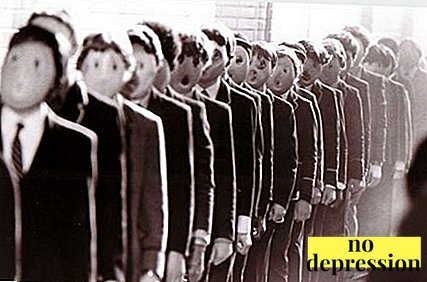It’s hard to find someone who has never heard of coaching. But there are very few who understand what coaching is and can draw the right conclusions about its meaning. It is even more difficult to understand the level of a coach, to distinguish a specialist from a charlatan. After all, far from everyone who calls himself a coach has undergone specialized training and has the necessary certificates. It turns out that many people, thinking about coaching, do not understand what it is. Make mistakes, get frustrated, make wrong conclusions. Let us examine the topic of coaching and consider whether it is needed at all.
What is coaching?
Coaching is a way of development aimed at achieving success in work or personal life by a client, thanks to cooperation, not learning. The coach does not give answers or recommendations, and during the dialogue he helps the client to come to the necessary conclusions and work out the right strategy of behavior.
If we are talking about training, it means interaction with the audience, aimed at developing the necessary skills of those present. If we talk about consulting services, the coach is a consultant who provides continuous support. It turns out that coaching is a solution to life or work issues, through the activation of the client’s own deep knowledge and skills.
Do not think that coaching can learn by yourself. This is the same discipline as medical practice, psychology, pedagogy, etc. The most famous center for training new coaches is the International Coaching Federation (ICF). This organization has gathered more than 24 thousand professionals from 50 countries. Its founders have developed a strict certification system for applicants, focusing on the unification of coaching around the world.
There are three basic levels of dedication coaches. To obtain a basic, you must go through more than 60 hours of preparation and devote 100 hours to practice. If a person has decided to become a master of coaching, then he should be ready for 200 hours of training and 2500 hours of practice. Like any other profession, coaching is not without its drawbacks, possessing positive sides. Let's talk about them further.
Coaching Benefits
The most important feature of coaching is the method of forming the necessary skills. This is not a lecture or seminar. Coaching is a collaboration, not a learning process. This approach should help develop personal skills, not provide knowledge. After all, knowledge does not always imply skills, but skills allow you to perform the right actions at a subconscious level. That is, after the training the participant may not remember much of what was said there. But in the necessary situation, he will act as required.
The benefits of coaching are setting the right priorities, understanding yourself and your abilities. But there are also disadvantages.
Coaching Disadvantages
With the qualification of a specialist, coaching is practically devoid of shortcomings, except for the high cost of such services. But many “trainers” choose this direction for their own enrichment, and not real concern for their students. If you get to this "mentor", then at best, we can hope that it will not get worse. To choose a real pro, it is advisable to make sure that he has the necessary certificates, see the portfolio, get customer feedback, etc.
A significant disadvantage of coaching is the need to regularly “refresh” its results. Immediately after the training, the listener is mostly full of strength and confidence, but all this quickly begins to be forgotten. Here either regular classes are needed or personal persistence.
Basic Coaching Principles
The effect of coaching is obtained through a positive approach to solving problems. It is expressed in five basic principles of coaching:
- Every person is fine;
- Each possesses the resources necessary for its success;
- The client is driven by positive intentions;
- People are constantly changing;
- Man tends to choose the best.
Perhaps, after reading these postulates, someone does not agree - this is everyone’s business. But to coaching led to the desired result, it is desirable to think so.
Types of coaching
New challenges in the world are generating new demands from society that coaching is trying to take into account. New forms or directions regularly appear. Among the popular types of coaching:
- Business coaching;
- Administrative coaching;
- Career coaching;
- Life coaching;
- Sports coaching.
According to the target audience, coaching is divided into group (team) and individual. After all, you can develop personally, as well as invite a coach to increase the overall efficiency of your employees, or a team of athletes (football, hockey, volleyball, etc.).
Business coaching
The collective name of the services, allowing to be better guided in business activity, to achieve results in business. Often, such coaching is aimed at improving the efficiency of the entire team of employees. Especially those people who are directly in contact with customers.
It is this type that is most often on a consulting basis when a specialist is invited to help organize the work of the entire organization.
Administrative coaching
Training for Top Managers (managers) who manage the activities of the entire company. Do not idealize leadership, introducing them to some special people of the upper class. Sometimes random people who need to “grind” simple truths get into the tops. Administrative coaching is no different in complexity from other types of this profession. But responsibility is certainly higher, because the efficiency of the whole business depends on the competence of the management.
Career coaching
Such coaching is set up for accelerated career advancement. Implies an individual approach. Career growth - an individual phenomenon, almost intimate. So, training in the necessary skills takes place, tete-a-tete, or during collective training for representatives of various firms. Very often, these coaches cooperate with employment agencies, helping people find their profession and achieve success in it.
Life coaching
The most adventurous kind of this profession. A coach must instill a loser that he can succeed, and then have time to hide, until he is not convinced by this. But seriously, life coaching is the most important area. After all, depend on it, in the literal sense of the word, the lives of people. It's one thing to stumble upon a charlatan and not advance in the service, and quite another to lose the meaning of life. A life coaching specialist needs extensive experience, knowledge in psychology, life wisdom in all possible areas, from relationships or friendship to almost clinical cases.
Sports coaching
Practically the same as the previous version, only it is necessary to run more quickly, especially if you train a team of boxers. Achievements in sports depend on the correct psychological preparation of athletes. Oddly enough, because of this, muscles grow faster, heads get clogged up more, injuries are more easily transferred. A coach in sports is a psychologist and strategist in one person.
An important direction of sports coaching is team building, which allows players to become practically one unit, understanding each other as themselves, and sometimes even better.
What is coaching - figured out. Species listed, "pitfalls" labeled. It remains to be noted that this profession is relevant, but to invite such specialists or not is everyone’s business. In principle, coaches do not give anything new, but help people to better understand their own abilities. But sometimes without help a person risks never to understand himself. Therefore, if such a need arises, it is better to try, just in the process of learning, regularly listen to your feelings and intuitions.



